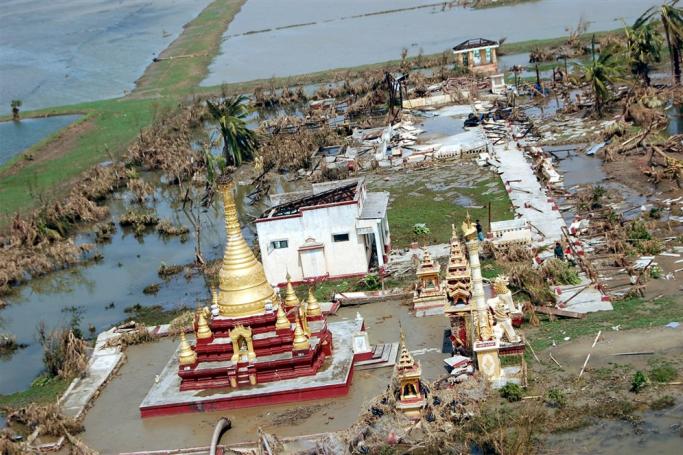The sight was sad to see – at least for those who noticed. Last week we saw Ms Danielle Parry, the acting head of the UN Office for the Coordination of Humanitarian Affairs (UNOCHA) in Myanmar, going cap-in-hand to meet the junta Minister for Social Welfare, Relief and Resettlement Thet Thet Khine in Naypyidaw
During the 5 July meeting, the two discussed the delivery of aid to Cyclone Mocha survivors in Rakhine State – or at least the wish to deliver aid. The UN and other INGOs have been facing problems as reportedly no international humanitarian groups have been permitted access to cyclone-impacted communities since 8 June, despite having millions of dollars-worth of aid ready to send. According to news reports, Ms Parry reportedly called on the junta to allow UNOCHA to resume its work.
Well over six weeks after Cyclone Mocha wreaked havoc across a swathe of western Myanmar, it is now painfully obvious that we are in effect witnessing a repeat of the 2008 Cyclone Nargis military regime intransigence over helping the storm-affected. The then-regime received a bad rap over its failures and pig-headed obstruction.
Admittedly, Cyclone Nargis was far more destructive with a death toll of 138,000 compared to the 140 the current junta claims were killed by Cyclone Mocha. When Cyclone Mocha hit in mid-May, warnings, better communications and preparation made a significant difference to help protect the population. Yet, here we are once again having international aid organizations begging to help as happened in the wake of Nargis and seemingly being rebuffed once again.
Such is the dire state of the Cyclone Mocha humanitarian aid programme, a mix of local and international efforts, that the UN, in their latest report, equates the junta performance and “climate of fear” with crimes against humanity. Anecdotally, we are hearing of communities crying out for help.
OHCHR Spokesperson Ravina Shamdasani, during a UN briefing in Geneva on the comprehensive human rights update for Myanmar, stressed that intentional obstruction or denial of humanitarian assistance may amount to serious violations of international law.
“The military has operated as if those providing aid are helping those opposed to their rule, rather than respecting their need for protection and facilitating their access and assistance to the civilian population in a time of crisis,” Ms Shamdasani said. She cited the Myanmar military’s “four cuts” strategy outlined in the report “to kill and injure thousands of civilians while destroying goods and infrastructure necessary for survival, including food, shelter, and medical centres”.
“Notably, our report says the security situation has dramatically worsened for humanitarian workers since the coup. Aid providers are consistently exposed to risks of arrest, harassment or other mistreatment, or even death,” Ms. Shamdasani added. “In the context of armed conflicts, intentional obstruction or denial of humanitarian assistance may further constitute war crimes such as willful killing, torture and other degrading treatment, starvation, and collective punishment.”
In 2008, post-Cyclone Nargis, the Myanmar military regime showed it was the enemy of the people. Today, in 2023, there can be little or no debate that the current illegal military regime is seeking to once again play games and make a bad situation worse.












